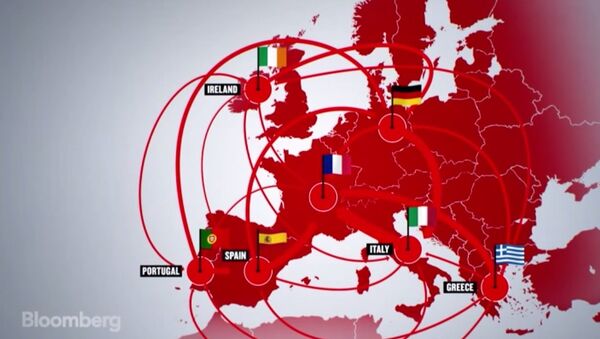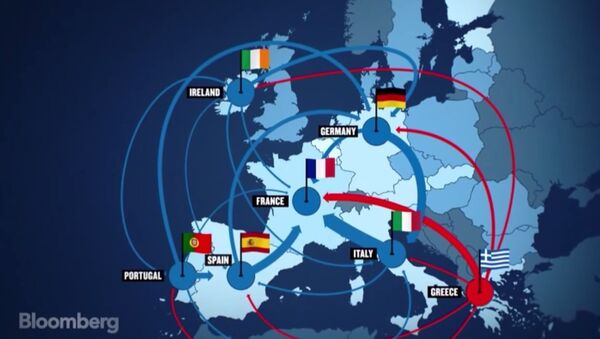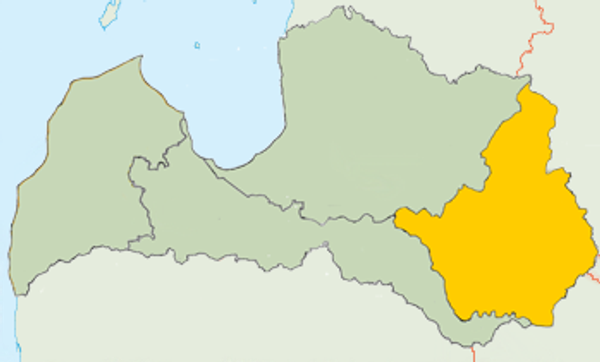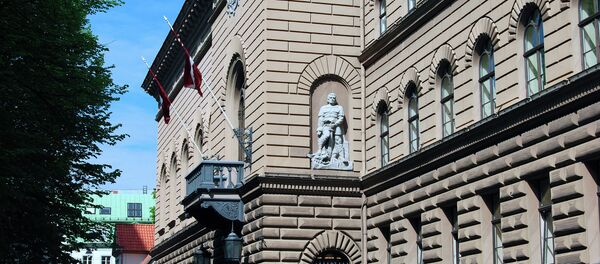The video, originally published by the business news agency in early 2014, looks to explain the causes and consequences of the European debt crisis, as well as possible solutions. But it is the presentation's map, rather than the video's content, which has caused an uproar in Latvia.
Popular local news website Delfi.lv explained that a "worried portal reader" had brought it to their attention that the "approximately 12 minute long video shows several maps of Europe where the Latgale part of Latvia is first marked by a different color, and then [features] a line separating it" from the rest of the country.
The reader also points out that the video "repeatedly designates Latvia as a country outside the single European currency, the euro," despite the fact that the country had joined the euro zone in January 2014.
"Perhaps it was simply a technical error in the graphics, but it does not alleviate one's discomfort," the distressed reader lamented.
The 'technical error' truly is an oddity. At one point the map clearly separates a territory resembling the region of Latgale, which has a large population of ethnic Russians, not only from Latvia, but from the rest of Europe as well. As fate would have it, the same map also shows a terra incognita islet between Romania and Bulgaria, appearing to carve out a piece of the Bulgarian region of Ruse from the rest of the country.

Theories have appeared on Latvian social media that the 'error' may have been an attempt by the Spanish to take a small revenge on Latvia for former Latvian Prime Minister Valdis Dombrovskis's support for Catalonia's independence. In 2013, Dombrovskis had commented that he would not see any issues in recognizing Catalonian independence if it was done in a "legitimate" way. But where Jarvis and the video's other creators figure in all this remains a mystery.
Along with its sizable Russian minority, Latgale is also home to Latgalians, a minority group comprised of between 150,000 to 200,000 people which speaks a distinct dialect of Latvian and practices Roman Catholicism, rather than the Lutheranism predominant in much of the rest of the country. Many local historians believe that Latgalians are more 'Russified/Polonized' than Latvians further to the West, who historically underwent more prolonged Germanization.




